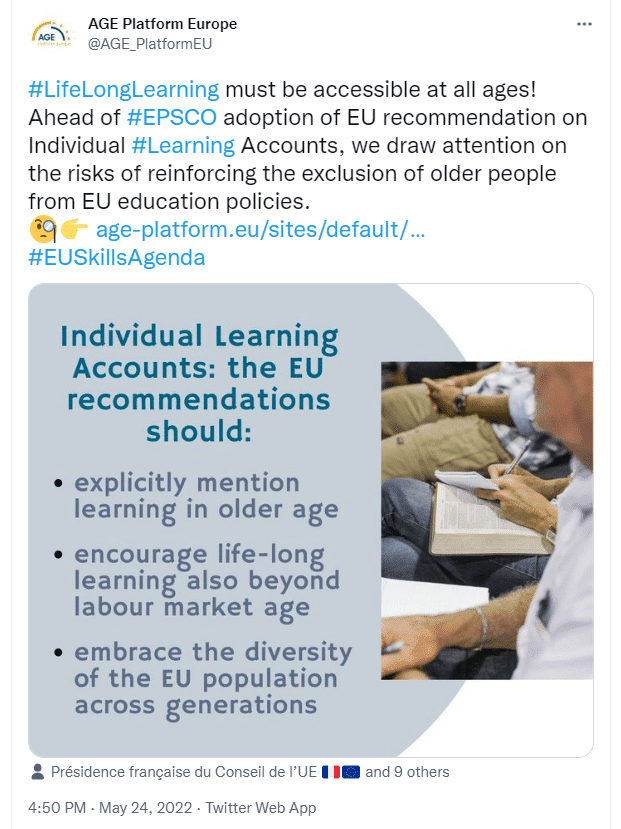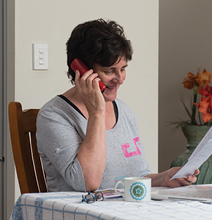Ahead of the adoption of EU recommendation on Individual Learning Accounts by EU ministers, we draw attention on the risks of reinforcing the exclusion of older people from European policies on life-long learning and education.

Older people left behind
AGE welcomes the European Commission proposal on individual learning accounts in its intention to develop a life-long learning culture through Europe and to give individuals full ownership over their education. However, AGE warns against the risks of reinforcing the exclusion of older people from European policies on life-long learning and education, as it focusses on the working-age population and does not address age-related inequalities in the access to education and training.
AGE recommendations
To achieve principle 1 of the European Pillar of Social Rights and the EU-level target of 60% of all adults taking part in training every year by 2030, life-long learning must be accessible at all ages. In the joint Policy Statement, we specifically suggests:
- to mention older workers in the recommendation, emphasising the need of training entitlements and targeted communication to prevent professional exclusion and tackle unemployment at older age;
- to lift the age limit which is discriminatory and goes against to the right to education;
- to embrace the diversity of the European population and ensure accessible, adapted, adequate learning opportunities for all.
Individual learning accounts could become a powerful tool of individual empowerment as soon as they become relevant at all ages. We hope that the Council of the European Union will put special attention to these suggestions in the recommendation soon to be adopted.
Read also our articles:
- EU steps up its ambitions for life-long learning – but age barriers remain
- Building a culture of life-long learning through individual credits & tailored certification
For more information, you may contact Sarah Loriato, sarah.loriato@age-platform.eu







